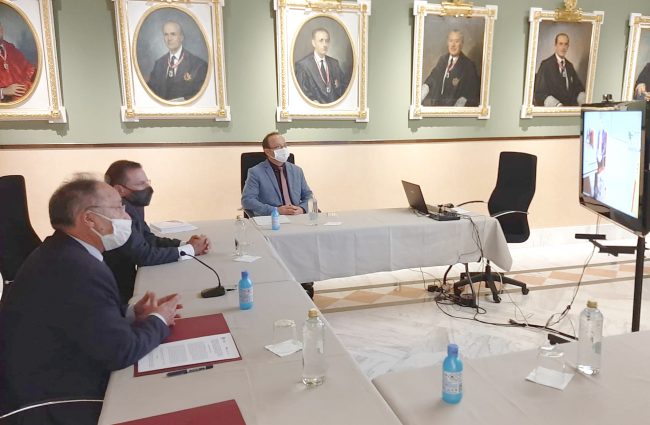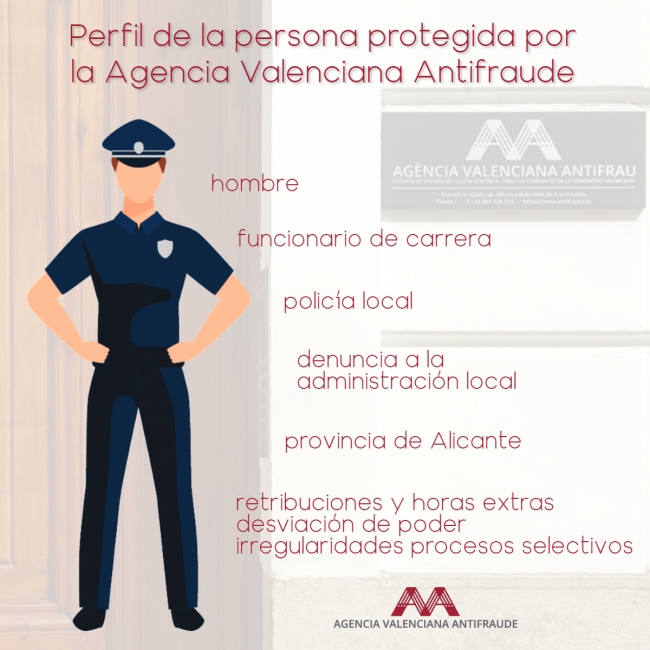By virtue of a collaboration agreement, the autonomous institution will access the notarial bases of real ownership and people with public responsibility
Madrid and Valencia, October 7. This morning, Joan Antoni Llinares, director of the Agency for the Prevention and Fight against Fraud and Corruption of the Valencian Community (AVAF); and José Ángel Martínez Sanchiz, president of the General Council of Notaries (CGN) have telematically signed a collaboration agreement between both institutions. The dean of the Notarial College of Valencia was also present at the signing ceremony of this agreement
In order to reinforce the fight against fraud and corruption, the agreement allows AVAF to access the databases of beneficial owners and persons with public responsibility of the CGN. Telematic access to these files will be carried out with the highest security standards and in accordance with the Data Protection regulations. Notarial information will allow the AVAF verification systems and inspection actions to be more effective.
The AVAF, an independent autonomous entity, aims to prevent and eradicate fraud in Valencian public institutions by promoting integrity and ethics and fostering a culture of good practices and rejection of corruption. The specific functions of the Agency include: investigating cases of irregular use of public funds; warn of conduct by public personnel that involves the abuse of information for private benefit; investigate and initiate procedures constituting infringement or prevent conflicts of interest.
This agreement is territorially complemented with another similar one signed by the CGN with the Generalitat Valenciana last May, which provided the General Inspection of Services of the Department of Justice, Interior and Public Administration with access to the notarial bases for the investigation of irregularities committed by people or companies related to the public sector.
Notarial databases
The CGN created in 2005 the Centralized Body for the Prevention of Money Laundering (OCP). Its technicians carry out their work analyzing data from the Single Computerized Notary Index, which contains information from the deeds authorized before the almost 3,000 Spanish notaries. In turn, two other files are derived from this Index: the Real Owner Database (BDTR) and the Database of People with Public Responsibility (BDRP).
The BDTR, in operation since 2012, is unique in the world and allows public authorities to find out who are the people behind a commercial company. On this basis, the beneficial owners of 2,094,000 limited companies, 126,000 public limited companies and 210,000 non-commercial legal entities, such as associations, foundations or political parties, are identified in an accredited manner. Since its creation, judges, police authorities and subjects required by law (financial entities, auditors, insurance companies …) have requested more than 3,500,000 information from the OCP on the beneficial owners. In addition, 51 agreements have been signed with obliged subjects in the fight against money laundering (from banks to real estate companies) that request information from this database in order to fulfill their duty to know who is the beneficial owner of a company.
The OCP has also created the BDRP, in which 39,437 natural persons are identified: 22,467 persons with public responsibility by choice or by appointment; 16,970 close people; 2,088 for being beneficial owners of a company in which a person with public responsibility also participates and 14,882 with close business relationships with a person with public responsibility.
| Editable note in ODT format | |
| Editable note in DOC format |




